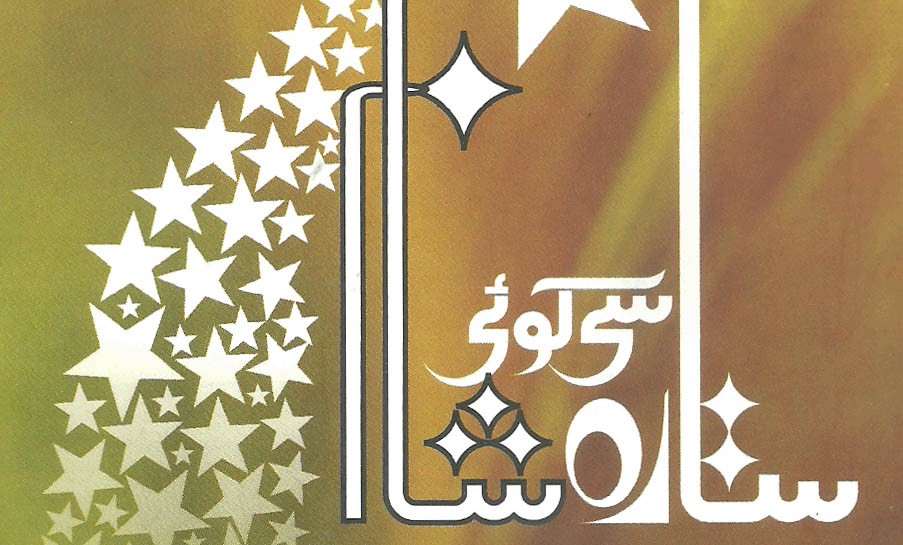
Having mastered ghazal, Saleem Figar turns to nazm and excels there too

After Pakistan and India, England and more particularly London is considered the biggest world centre for Urdu literature. All famous Indian and Pakistani poets and writers have been attending mushairas and literary meetings in London and other cities of the UK where many South Asians are settled.
In 1986, when progressive writers of India and Pakistan were celebrating the 50th anniversary of their prestigious Progressive Writers’ Movement, they did not choose Delhi, Lucknow or Lahore for the occasion, but chose London instead. There was a historic congregation of all famous South Asian literary figures in London. These days, London is an international centre for the activities of Faiz Ghar -- an organisation established to celebrate and promote the poetry of Faiz Ahmed Faiz.
Apart from being a generous host to South Asian writers and poets, London has also served as a nursery for the growth of local poetic talent. In the 1980s when Iftikhar Arif was running the Urdu Markaz at an attractive and convenient location in central London, a lot of young Urdu poets would gather at the Markaz every week to share their poetic renderings and to discuss contemporary issues of literature.
Among the older generation of the UK-based Urdu poets were Saqi Farooqi, Ghulam Nabi Azad, Akbar Hyderabadi, Ather Raaz, Akhtar Ziaee, Bux Lyallpuri, Saddiqa Shabnum, Baqir Naqvi, Aqeel Danish, Ejaz Ahmed Ejaz, and others who were a big inspiration for the younger lot. They also provided practical help in matters of composing Ghazal poetry with all its intricacies of figures of speech, problems of metre, and rhetorical flourishes etc.
The younger lot that developed into poets of merit in the 1980s and 1990s included writers like Arshad Lateef, Yashab Tamanna, Basir Kazmi, Mansoor Afaq, Yasmeen Habib, Najma Usman, Shabana Yousuf and Gulnaz Kausar. At a later stage, two more young men joined the club: Shahbaz Khwaja and Saleem Figar, and while Khwaja’s poetry is still scattered in various magazines and personal files, Figar has been able to compile his works into books.
"Entangled in the net of awareness, I have been trying to express those innermost feelings which are created by the magic of inspiration," writes Figar in the Preface of his book. "Poetry is a mysterious process. Looking at the known history of my family, I cannot trace a man even remotely connected to literature or poetry … I am a one-off phenomenon, and my art is not based on any systematic study of prosody, or any apprenticeship in the traditional sense".
This apparent lack of skill is in fact the poet’s forte. His expression remains unlike others; his diction is unique, and the overall impression is that of novelty, vigour and freshness:
It’s love, my love !
That sinking in the ocean of your apathy,
I silently endure your indifference.
When you shoo me away, I come back like a bird,
And look for my refuge in the thick branches of your banyan tree.
It’s love, my love!
(Translated from Urdu)
Figar was born in a village of district Jhelum and after his schooling he moved to England in search of greener pastures. Like other young men of his generation, he was deeply impressed by the revolutionary poet Sahir Ludhianvi, and remembered many of his poems by heart. Later on, Faiz also became a favourite of his, but Figar proudly says that he never mimicked Faiz or Sahir’s styles, not even in his early poems.
Like most novices, he started with ghazal, but soon realised the restrictions of metre and rhyme were great obstacles in the way of free expression. Ghazal, as we all know, is not a consistent poem on a particular theme, but each couplet stands by itself and presents a different unit of thought. This fragmentary nature makes the ghazal a unique phenomenon in world literature.
The traditional ghazal which usually consists of love lyrics has a fixed imagery for describing the beloved: her erect structure always like a cypress tree; her face fresh like a rose and shining like the moon or the sun; her eyes like those of a deer’s and her locks akin to a dark night or poisonous snakes or dangerous snares. Good poets, however, have used this traditional imagery in a manner that the whole context changes and we are face to face with a different kind of reality. Figar’s ghazals are never a patchwork of disconnected thoughts; they take us smoothly from one thought to another with an emotional swing.
But despite his mastery over the ghazal, Figar feels more comfortable with the format of nazm, and more so with nasri nazm or prose poem. The poem on page 74 is an elegy of an unborn child who is murdered before he could see the light of day. At first sight it seems to be an anti-abortion poem, but a closer read shows it is not a simple feticide, but an act of sectarian violence in which a man and his pregnant wife are brutally murdered. The focus, however, soon shifts to collateral damage of violence which becomes the central theme of the poem:
"Travelling through centuries,
For a short stay, I came to this inn, my mother’s cosy womb.
I was waiting for my limbs to grow
I felt the growth of fingers on my hands
My eyes, my nose, my ears were taking shape
But then suddenly those burning bullets
Pierced through my mother’s womb
And went straight into my tender incomplete body"